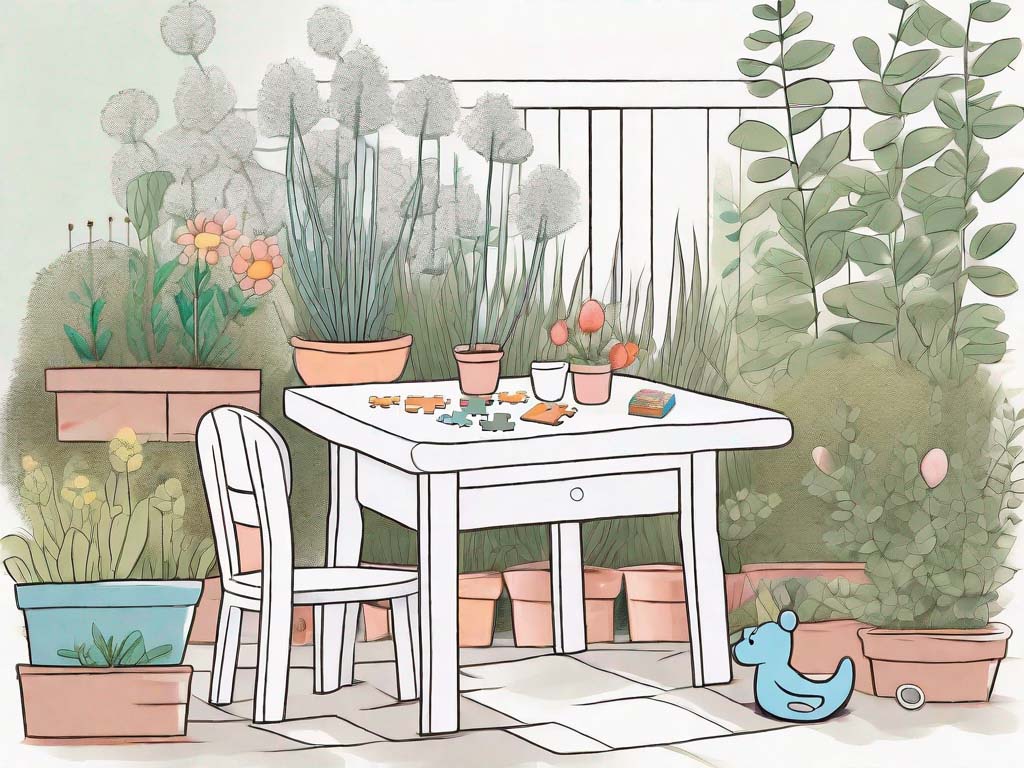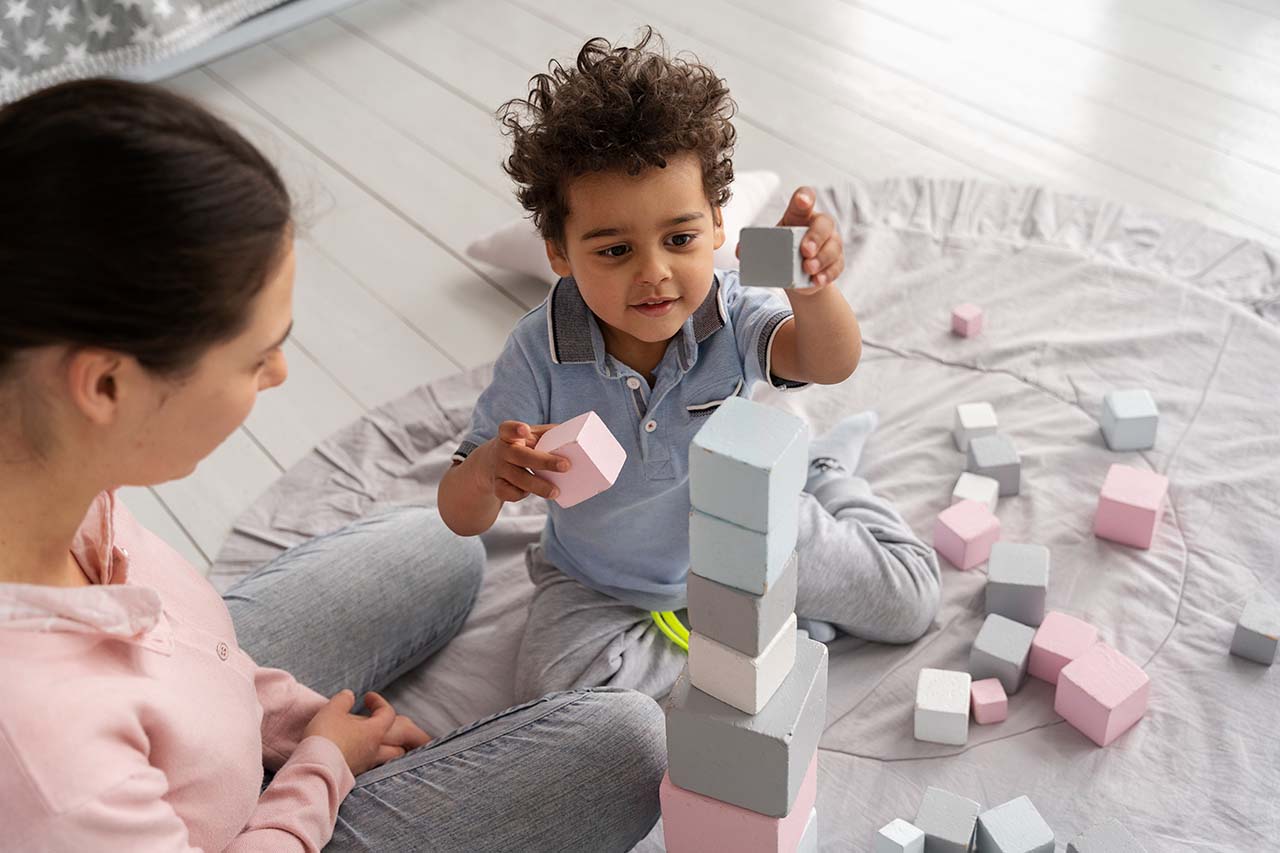
The Benefits of Child Therapy
Child therapy is a valuable tool for helping children navigate their emotions and behaviors. In this article, we will explore the benefits of child therapy, the different types of therapy available, and how to choose the right therapist for your child.
Understanding Child Therapy
Child therapy, also known as child counseling, is a specialized form of therapy that focuses on addressing emotional and behavioral issues in children. It provides a safe and supportive environment for children to express themselves and learn healthy ways of coping with challenges they may face.
Child therapy is a dynamic and multifaceted field that encompasses various therapeutic approaches tailored to meet the unique needs of each child. It recognizes that children have their own distinct ways of communicating and processing emotions, which may differ from those of adults. Therefore, child therapists employ specialized techniques to engage with children effectively.
Defining Child Therapy
Child therapy is a collaborative process between the child, their parents or caregivers, and the therapist. It aims to help children overcome difficulties and develop the necessary skills to navigate through life’s challenges. By providing a safe and nonjudgmental space, child therapists create an environment where children feel comfortable expressing their thoughts, feelings, and experiences.
During child therapy sessions, therapists utilize various therapeutic modalities to facilitate healing and growth. Play therapy, for example, is commonly used to help children communicate and process their emotions through play. Using toys, art materials, and imaginative play, children can explore their inner world and work through their struggles in a developmentally appropriate manner.
The Role of a Child Therapist
A child therapist is a trained professional who specializes in working with children. They possess a deep understanding of child development, psychology, and the unique challenges that children may face. Child therapists play a crucial role in helping children explore their emotions, develop coping strategies, and improve their overall well-being.
Child therapists employ a range of therapeutic interventions to meet the specific needs of each child. Talk therapy, for instance, involves engaging in conversations with the child to help them gain insight into their thoughts and feelings. This approach allows the child to develop a better understanding of themselves and their experiences, leading to personal growth and positive change.
Another valuable intervention used by child therapists is artistic play. By engaging in creative activities such as drawing, painting, or sculpting, children can express themselves in a non-verbal way. These activities provide a safe outlet for children to explore their emotions and experiences, often leading to increased self-awareness and emotional regulation.
Child therapists also work closely with parents or caregivers to provide support and guidance. They help parents understand their child’s emotional needs and provide strategies for fostering a healthy parent-child relationship. By involving parents in the therapeutic process, child therapists create a collaborative approach that promotes long-term positive change.
Child therapy is a unique treatment approach aimed at addressing emotional and behavioral issues in children. Child therapists play a vital role in helping children navigate their feelings, develop coping strategies, and improve their overall well-being. Through various therapeutic techniques such as play therapy interventions, artistic play, and talk therapy, child therapists create a safe and supportive environment for children to heal and grow.
The Importance of Child Therapy
Child therapy is a crucial tool in helping children navigate the complex world of emotions and behaviors. It provides them with a safe and supportive space where they can explore and process their feelings, ultimately leading to a better understanding of themselves and their experiences.
One of the primary benefits of child therapy is its ability to address emotional and behavioral issues. Children often face challenges such as anxiety, depression, trauma, and behavioral problems that can significantly impact their development and overall happiness. Through therapy, children can work with trained professionals who specialize in child psychology to tackle these issues head-on.
Therapy sessions offer children the opportunity to express themselves freely and openly, without fear of judgment or criticism. This safe environment allows them to delve into the root causes of their emotions and behaviors, helping them gain insight into their own thoughts and actions. By exploring these underlying issues, children can begin to develop healthier coping mechanisms and learn how to manage their emotions more effectively.
Enhancing Communication Skills
Effective communication is a vital skill that children need to navigate various aspects of their lives. However, many children struggle with expressing themselves clearly and effectively, leading to frustration and misunderstandings. This is where child therapy can play a significant role.
Child therapists are trained to work with children to improve their communication skills. They teach children how to express their needs, thoughts, and feelings in a clear and respectful manner. By providing guidance and support, therapists help children develop the tools they need to communicate effectively with their peers, family members, and teachers.
During therapy sessions, children engage in various activities and exercises that encourage them to practice their communication skills. They may role-play different scenarios, engage in artistic play, or utilize puppets to practice effective communication. These activities not only enhance their ability to express themselves but also foster empathy and understanding towards others.
Furthermore, child therapy provides a safe space for children to learn and practice active listening skills. Therapists often teach children how to pay attention to others, validate their feelings, and respond appropriately. These skills not only improve their relationships but also help them become more empathetic and compassionate individuals.
Child therapy is a powerful tool that helps children address emotional and behavioral issues while enhancing their communication skills. By providing a safe and supportive environment, therapists empower children to explore their emotions, develop healthier coping mechanisms, and build stronger relationships.
Types of Child Therapy
Play Therapy
Play therapy is a widely used approach in child therapy. It allows children to communicate their emotions and experiences through play. By engaging in play, children can express their thoughts and feelings in a non-threatening and natural way. Through play therapy, children can gain insight into their emotions, learn problem-solving skills, and develop healthier coping mechanisms.
During play therapy sessions, therapists create a safe and supportive environment where children can freely explore their thoughts and emotions. They provide a variety of toys and materials that allow children to engage in different types of play, such as imaginative play, arts and crafts, and sand tray therapy. Through these activities, children can express their inner world, reenact difficult experiences, and experiment with new ways of being.
Play therapy is particularly beneficial for children who have experienced trauma, as it allows them to process and make sense of their experiences in a developmentally appropriate way. It also helps children who struggle with verbal expression to communicate their thoughts and feelings more effectively.
Cognitive Behavioral Therapy
Cognitive Behavioral Therapy (CBT) is another effective type of child therapy. It focuses on identifying and changing negative thought patterns and behaviors. CBT helps children recognize unhelpful thoughts and replace them with more positive and realistic ones. It also teaches children new coping skills to manage their emotions and challenging situations.
In CBT sessions, therapists work collaboratively with children to identify their negative thoughts and beliefs. They help children challenge these thoughts by examining the evidence for and against them. Through this process, children learn to reframe their thoughts in a more balanced and rational way. Therapists also teach children relaxation techniques, such as deep breathing and progressive muscle relaxation, to help them manage anxiety and stress.
CBT is particularly effective for children with anxiety disorders, depression, and behavioral problems. It empowers children to take an active role in their own therapy and provides them with practical tools to navigate their daily lives. CBT techniques can be easily adapted to suit the developmental level and individual needs of each child.
Benefits of Child Therapy
Improved Emotional Well-being
Child therapy can significantly improve a child’s emotional well-being. By working with a therapist, children can develop a stronger sense of self, build resilience, and learn healthy ways of managing their emotions. Therapy provides children with the tools and support they need to navigate life’s ups and downs more effectively.
Enhanced Social Skills
Child therapy also helps children develop and enhance their social skills. Through therapy, children learn how to communicate their thoughts and feelings, understand social cues, and develop empathy towards others. These skills are invaluable as they enable children to build meaningful relationships and navigate social interactions more successfully.
Choosing the Right Therapist for Your Child
Qualifications to Look For
When selecting a child therapist, it is essential to consider their qualifications and experience. Look for therapists who have specialized training in child therapy and are licensed or certified. It is also beneficial to choose a therapist who has experience working with children who have similar concerns as your child.
Finding a Therapist Your Child Connects With
Equally important is finding a therapist that your child feels comfortable with. The therapeutic relationship plays a vital role in the success of therapy. Take the time to meet with potential therapists and allow your child to participate in the decision-making process. A strong rapport between the child and therapist can foster trust and create an environment conducive to growth and healing.
In conclusion, child therapy offers numerous benefits for children, including improved emotional well-being, enhanced social skills, and effective strategies for coping with challenges. With a variety of therapy options available, it is important to choose the right therapist who can provide the support and guidance your child needs. By investing in child therapy, you are investing in your child’s future and helping them develop the tools they need to thrive.






